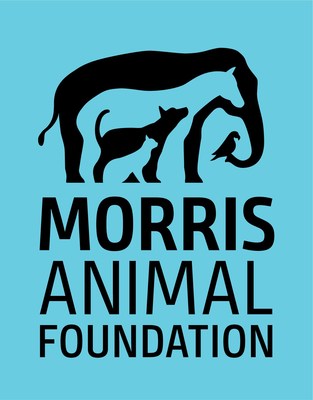Treatment used for drug overdoses in people could help sea turtles suffering from red tide exposure

DENVER, Sept. 17, 2019 /PRNewswire/ — Sea turtles suffering from toxic red tide exposure could benefit from a therapy used to treat human drug overdoses. Morris Animal Foundation-funded researchers at Florida’s Loggerhead Marinelife Center (LMC) are testing the use of intravenous lipid emulsion (ILE). The treatment, which involves injecting special fats into the blood stream, could greatly increase the rates at which turtles are released back into the wild.

“Red tides are becoming more frequent, and we’re going to see more strandings of threatened turtles,” said Dr. Justin Perrault, Director of Research at Loggerhead Marinelife Center. “This treatment could help us get them back into their environment, faster, which is important for their populations.”
Red tides occur annually in the Gulf of Mexico and are caused by a harmful algal species that releases potent neurotoxins, known as brevetoxins, into the surrounding water. Brevetoxins bind to fats and are often found in fatty organs, such as the liver, in affected turtles. Exposure to the toxins causes neurological symptoms in affected animals, like spasming and disorientation. This can lead to mass strandings and the deaths of many species of marine animals, including sea turtles. On average, up to 600 sea turtles strand from red tide exposure every year.
Intravenous lipid emulsion involves placing a needle in a turtle’s neck and dripping the lipid emulsion directly into the turtle’s bloodstream. The brevetoxins combine with these lipids and are then eliminated from the body through the turtle’s waste.
Loggerhead Marinelife Center is working with three other Florida-based animal rehabilitation centers to test ILE’s effectiveness on stranded loggerhead, green and Kemp’s ridley sea turtles. These are the three most commonly impacted turtle species. The centers have tested nearly 30 sea turtles so far and witnessed symptoms disappear in 24 hours. Researchers at LMC also are analyzing the turtles’ blood samples to observe how well the treatment decreases toxin levels.
Currently, when turtles are found stranded and alive, treatments often involve dehydration therapy, giving the turtles diuretics to force their kidneys to filter the toxins out of the body. This process can be slow and full recovery can take up to three months, decreasing chances of successful release to the wild.
ILE therapy was first pioneered in human medicine for drug overdose cases. It’s proven to have a positive effect clearing the body of lipid-soluble drugs, such as cocaine, as well as numerous anti-depressants and anti-psychotics. It also has shown promise in reducing brevetoxin concentrations and symptoms in freshwater turtles.
“This is another really exciting application of a treatment originally designed for humans,” said Dr. Janet Patterson-Kane, Morris Animal Foundation Chief Scientific Officer. “And while it is only being tested on sea turtles for now, it could be viable for other marine life impacted by red tides. This new treatment could become a critical tool for saving animal lives.”
Morris Animal Foundation, headquartered in Denver, is one of the largest nonprofit animal health research organizations in the world, funding more than $126 million in studies across a broad range of species.
Loggerhead Marinelife Center, located in Loggerhead Park, Juno Beach, Florida, is a nonprofit sea turtle research, rehabilitation, education and conservation center. It seeks to promote conservation of ocean ecosystems, with a special focus on threatened and endangered sea turtles.
About Morris Animal Foundation
Morris Animal Foundation’s mission is to bridge science and resources to advance the health of animals. Founded by a veterinarian in 1948, we fund and conduct critical health studies for the benefit of all animals. Learn more at morrisanimalfoundation.org.
View original content to download multimedia:http://www.prnewswire.com/news-releases/treatment-used-for-drug-overdoses-in-people-could-help-sea-turtles-suffering-from-red-tide-exposure-300919285.html
SOURCE Morris Animal Foundation
